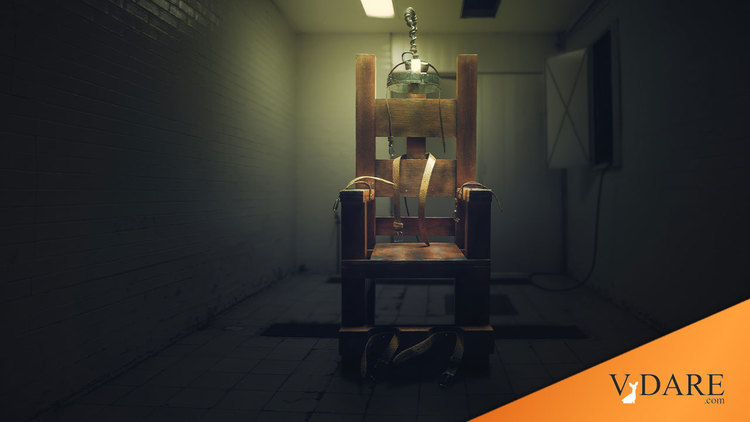


By Sam Francis
04/17/2001
The social event of the year seems to be the impending execution of Oklahoma City bomber Timothy McVeigh on May 16. Since McVeigh has admitted his guilt and abandoned his claims to further legal appeals that might have kept him alive for several more years, there need be no worries about what DNA evidence could show 50 years from now or the constitutional niceties of dispatching him so quickly, a mere six years after his act of terror. Therefore, everyone can sit back and enjoy the show without guilt.
"Everyone" now includes some 250 privileged spectators who happen to be victims of the Oklahoma City blast or relatives of those murdered by it whom Attorney General John Ashcroft, as an act of mercy and wisdom, is allowing to watch the fun close up on closed circuit television. "I am going to do what I can to accommodate the needs of these families," Mr. Ashcroft gravely intoned last week. "This is the first of the executions that the United States will have undertaken in this century and the first during the last 37 or so years. What we do here will obviously shape the process in some measure … and we have to be attentive to that."
It’s touching that Mr. Ashcroft is so deeply sensitive to the historic significance of the occasion. From the solemn way he talks about it, you'd think holding the first federal execution of the new century was something like dedicating a battlefield memorial. But what is even more touching is his alertness to the "needs" of those slobbering to watch McVeigh die.
Of course, no one has any "need" to watch the execution at all, and the federal government does none of us a good turn by permitting something very much like a public execution to take place. It’s one thing, and entirely proper, for the victims and relatives of the victims to want and demand McVeigh’s execution. It’s quite another for them to insist on watching it themselves. The first is a matter of justice and morally rooted retribution. The second is merely catering to revenge, anger and hatred. As attorney general, Mr. Ashcroft should know better than to surrender to such passions, let alone insinuate that they will be models for other executions in the future.
In a famous essay against capital punishment, French philosopher Albert Camus told the story of his father, who went to see the execution of a notorious criminal in a Paris prison back in the days when murderers were dispatched on the guillotine. His father returned home sick at his stomach, from which Camus inferred that there is something about killing a human being that normal men find revolting. Camus' point is well taken, though it doesn’t follow from it, as he claimed, that the death penalty should be abolished.
It doesn’t follow because the same nauseous reaction occurs when normal men watch other gruesome but morally justifiable and socially necessary proceedings. First year medical students often faint when they watch their first autopsy on a human corpse, but it doesn’t follow that autopsies or surgical operations should be banned. Most normal people would lose their breakfasts if they walked through a slaughterhouse, but only animal rights nuts would infer from the experience that killing animals for food and clothing should be outlawed.
Nevertheless, Camus' point remains valid. Because an act is both just and necessary doesn’t mean it should be carried out in public or that normal men should be encouraged to watch it and either suppress their natural responses to it or be tempted to feel that those responses are somehow inappropriate. When the 250 witnesses to McVeigh’s lift-off get a real gander of death deliberately administered, that’s exactly how they will tend to react to it.
The point here is not the cliché of death penalty opponents that killing McVeigh won’t bring back the victims he murdered. The point is that allowing some people to watch McVeigh be killed will do nothing to enhance or confirm the justness of his death, will certainly cheapen it and may serve to subvert the purpose of other deserved executions in the future.
It’s tempting to say–and probably it is widely believed–that no criminal in this country deserves death more than Timothy McVeigh, but that’s not true. The prisons are full of men who deserve death at least as much as McVeigh and maybe more so. But few of them are executed, because they are seldom hated as much as McVeigh and the authorities who are supposed to execute them lack the moral courage to carry out what justice and law demand. In the case of McVeigh, these same authorities have managed to turn what should have been a solemn act of law and justice into something resembling an afternoon soap opera.
COPYRIGHT 2001 CREATORS SYNDICATE, INC.
April 17, 2001